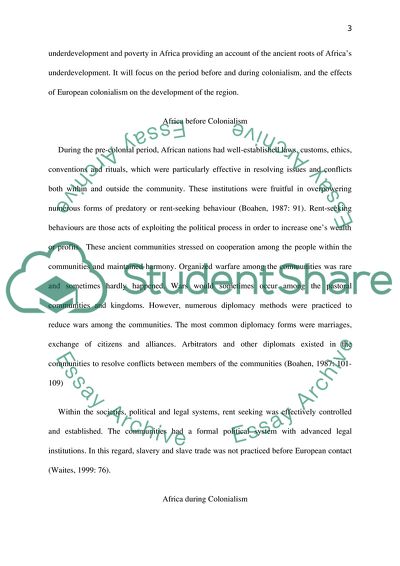Cite this document
(The Impact of Colonialism on Africa Case Study Example | Topics and Well Written Essays - 2000 words, n.d.)
The Impact of Colonialism on Africa Case Study Example | Topics and Well Written Essays - 2000 words. Retrieved from https://studentshare.org/sociology/1644040-colonialism-gave-nothing-to-africaexpect-povertyfamine-disease-and-underdevelopment-discuss
The Impact of Colonialism on Africa Case Study Example | Topics and Well Written Essays - 2000 words. Retrieved from https://studentshare.org/sociology/1644040-colonialism-gave-nothing-to-africaexpect-povertyfamine-disease-and-underdevelopment-discuss
(The Impact of Colonialism on Africa Case Study Example | Topics and Well Written Essays - 2000 Words)
The Impact of Colonialism on Africa Case Study Example | Topics and Well Written Essays - 2000 Words. https://studentshare.org/sociology/1644040-colonialism-gave-nothing-to-africaexpect-povertyfamine-disease-and-underdevelopment-discuss.
The Impact of Colonialism on Africa Case Study Example | Topics and Well Written Essays - 2000 Words. https://studentshare.org/sociology/1644040-colonialism-gave-nothing-to-africaexpect-povertyfamine-disease-and-underdevelopment-discuss.
“The Impact of Colonialism on Africa Case Study Example | Topics and Well Written Essays - 2000 Words”. https://studentshare.org/sociology/1644040-colonialism-gave-nothing-to-africaexpect-povertyfamine-disease-and-underdevelopment-discuss.


